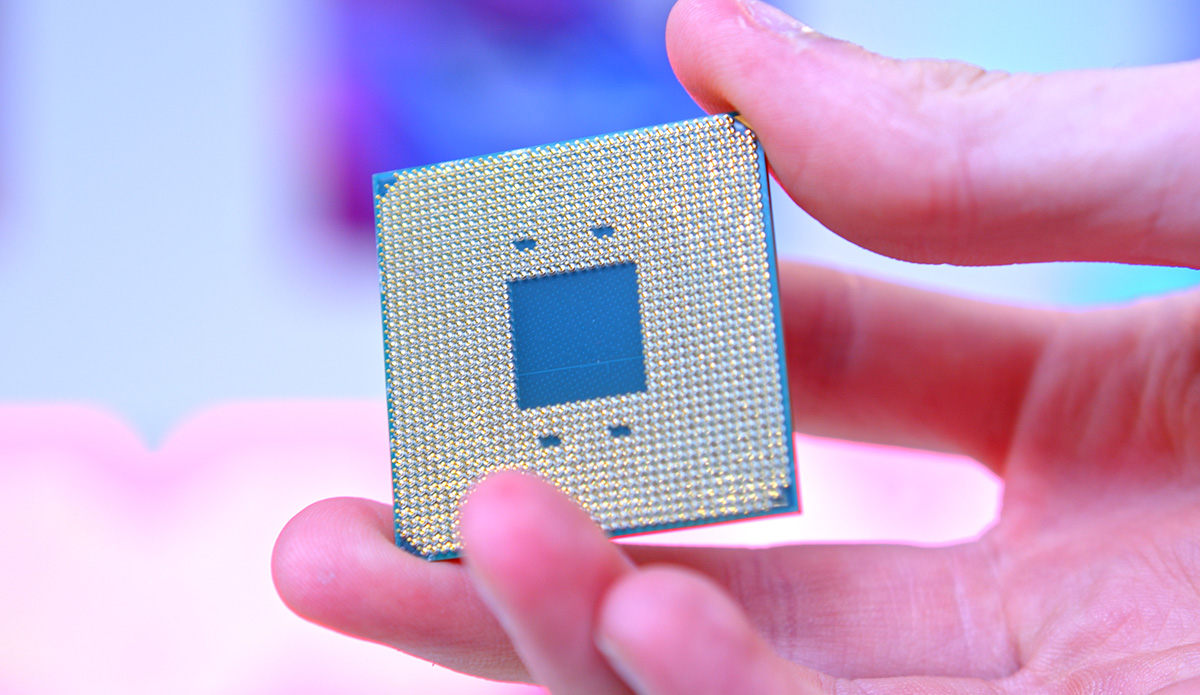Understanding The Importance Of Cpu In Desktops

In the world of desktop computers, the CPU (Central Processing Unit) reigns supreme as the brains behind all operations. While it may seem like just another technical component, understanding the importance of the CPU in desktops is crucial for anyone looking to upgrade or purchase a new computer. From powering everyday tasks to driving high-performance applications, the CPU plays a pivotal role in the overall performance of a desktop. Let’s delve into the world of CPUs and uncover why they are the beating heart of any desktop computer.
Related: Buy Best Desktops in Oman
Understanding the Core Functions of CPU in Desktop Computers
The CPU, or Central Processing Unit, is the heart and brain of any desktop computer. It is responsible for executing and managing all the instructions and calculations necessary for the computer to function. Understanding the core functions of the CPU is crucial for anyone looking to upgrade their desktop or simply gain a deeper understanding of how these powerful machines work.
1. Processing Power: The CPU is responsible for carrying out all the calculations and operations that make your computer run smoothly. It performs basic arithmetic, logical, control, and input/output operations. The speed and processing power of the CPU are measured in terms of clock speed, cache size, and the number of cores it has. The higher the clock speed and cache size, and the more cores a CPU has, the faster and more efficient it will be at executing tasks.
2. System Control: The CPU acts as the control center of your computer, managing and coordinating all the other components. It controls the flow of data between different parts of the computer, ensuring that everything is working together seamlessly. It also handles the allocation of resources such as memory and storage, ensuring that each program and task gets the necessary resources to run smoothly.
In summary, the CPU plays a vital role in the functioning of desktop computers. It is responsible for processing power and system control, making it essential for a smooth and efficient computing experience. Understanding the core functions of the CPU can help you make informed decisions when it comes to upgrading or troubleshooting your desktop. So next time you fire up your computer, take a moment to appreciate the importance of the CPU working behind the scenes to make everything possible.
Examining the Impact of CPU on Performance and Speed in Desktops
When it comes to desktop computers, the CPU (Central Processing Unit) plays a crucial role in determining the overall performance and speed of the system. This small but mighty component acts as the brain of the computer, executing instructions and performing calculations that drive all the tasks and processes.
Why is the CPU so important?
- The CPU determines how fast your computer can process data and perform tasks. A powerful CPU can handle complex operations quickly, resulting in faster overall performance.
- It affects multitasking capabilities. A high-performance CPU allows you to run multiple applications simultaneously without experiencing significant slowdowns or lag.
- The CPU impacts the speed and responsiveness of your computer’s operating system. A faster CPU ensures that your desktop boots up quickly, launches applications swiftly, and handles resource-intensive tasks seamlessly.
- It influences the performance of applications and software. CPU-intensive tasks like video editing, gaming, and 3D rendering heavily rely on a powerful CPU to deliver smooth and lag-free experiences.
Understanding the impact of the CPU on performance and speed is crucial when choosing a desktop computer. Whether you’re a casual user, a professional, or a gaming enthusiast, investing in a desktop with a powerful CPU can significantly enhance your computing experience.
Unveiling the Key Factors to Consider When Selecting a CPU for Your Desktop
When it comes to desktop computers, the CPU (Central Processing Unit) plays a crucial role in determining the overall performance and capabilities of the system. Understanding the importance of selecting the right CPU for your desktop is essential to ensure that you can enjoy a smooth and efficient computing experience.
1. Performance: The performance of your desktop largely depends on the CPU’s speed and number of cores. A higher clock speed means faster processing, while multiple cores allow for multitasking and improved performance in resource-intensive tasks such as video editing or gaming. Consider your specific computing needs and opt for a CPU that can handle the demands of your daily usage.
2. Compatibility: Before purchasing a CPU, it’s essential to ensure that it is compatible with your motherboard. Check the socket type and chipset of your motherboard and cross-reference it with the CPU specifications to ensure a seamless fit. Additionally, consider factors such as power requirements and cooling solutions to guarantee that the CPU can be properly supported by your desktop system.
| CPU Model | Clock Speed | Number of Cores | Price |
|---|---|---|---|
| Intel Core i5-10600K | 4.1 GHz | 6 | $269 |
| AMD Ryzen 7 5800X | 3.8 GHz | 8 | $449 |
| Intel Core i9-10900K | 3.7 GHz | 10 | $499 |
By understanding these key factors and considering your specific needs, you can make an informed decision when selecting a CPU for your desktop. Remember to research and compare different options, read reviews, and consult with experts if needed to ensure that you choose a CPU that meets your requirements and provides optimal performance for your desktop computer.
Optimizing Your Desktop Experience with the Right CPU Choice
Choosing the right CPU for your desktop is a crucial decision that can greatly impact your overall computing experience. The CPU, or Central Processing Unit, is often referred to as the “brain” of your computer, as it performs the majority of the calculations and tasks necessary for your system to function. When it comes to optimizing your desktop experience, having the right CPU choice is essential for achieving the best performance and efficiency.
One of the key factors to consider when selecting a CPU is its processing power. A more powerful CPU can handle complex tasks and demanding applications with ease, resulting in faster and smoother performance. This is especially important for tasks such as video editing, gaming, or running resource-intensive programs. Additionally, a powerful CPU can enhance multitasking capabilities, allowing you to run multiple applications simultaneously without experiencing lag or slowdowns.
Another important aspect to consider is the number of cores and threads that a CPU offers. Cores are individual processing units within the CPU, while threads are virtual cores that allow for parallel processing. More cores and threads can significantly improve the CPU’s ability to handle multiple tasks at once. This is particularly beneficial for users who frequently engage in multitasking or utilize software that is designed to take advantage of multiple cores, such as video editing software or virtual machines.
| CPU Model | Cores | Threads | Base Clock Speed |
|---|---|---|---|
| Intel Core i7-9700K | 8 | 8 | 3.6GHz |
| AMD Ryzen 9 3900X | 12 | 24 | 3.8GHz |
| Intel Core i5-10600K | 6 | 12 | 4.1GHz |
It’s also important to consider the clock speed of a CPU, which determines how fast it can execute instructions. A higher clock speed generally translates to faster performance, but it’s important to strike a balance between clock speed and other factors such as power consumption and heat generation. Additionally, factors like cache size, thermal design power (TDP), and compatibility with your motherboard should also be taken into account when making a CPU choice.
In conclusion, choosing the right CPU for your desktop is essential for optimizing your overall computing experience. By considering factors such as processing power, number of cores and threads, clock speed, and other specifications, you can ensure that your computer performs at its best and meets your specific needs and requirements.
Concluding Remarks
In conclusion, the CPU is the heart and brain of a desktop computer, playing a crucial role in its overall performance and capability. Understanding the importance of the CPU in desktops can help users make informed decisions when it comes to purchasing or upgrading their systems. By recognizing the significance of this component, individuals can better appreciate the intricate and dynamic nature of modern computing technology. Whether you’re a casual user or a tech enthusiast, having a solid grasp of the CPU’s role in desktops can enhance your overall computing experience and empower you to make the most of your machine. As technology continues to evolve, the CPU will remain a fundamental element in desktops, driving innovation and shaping the future of computing.



